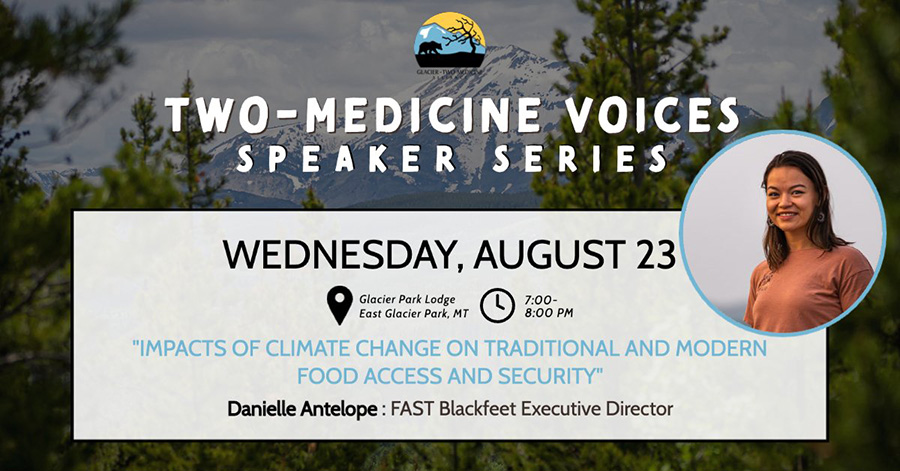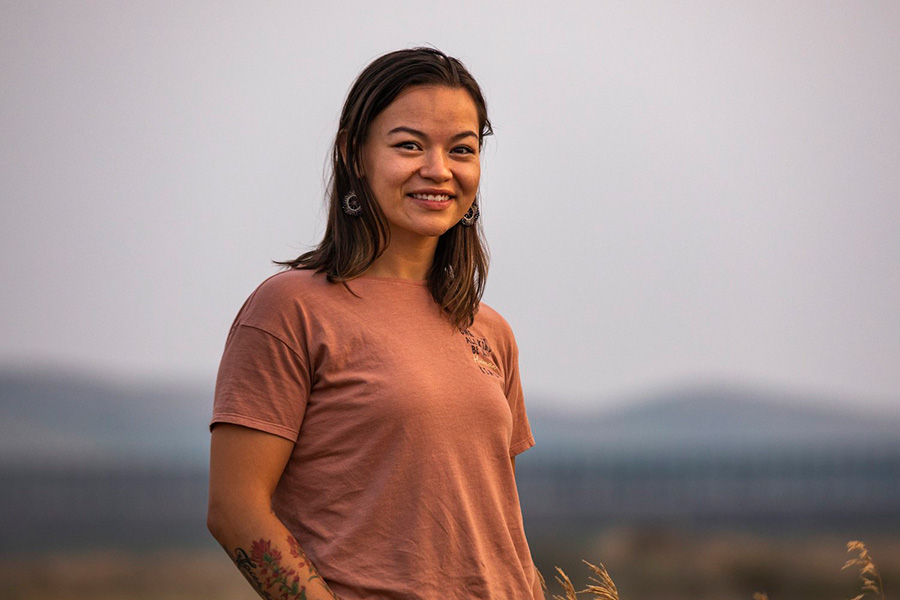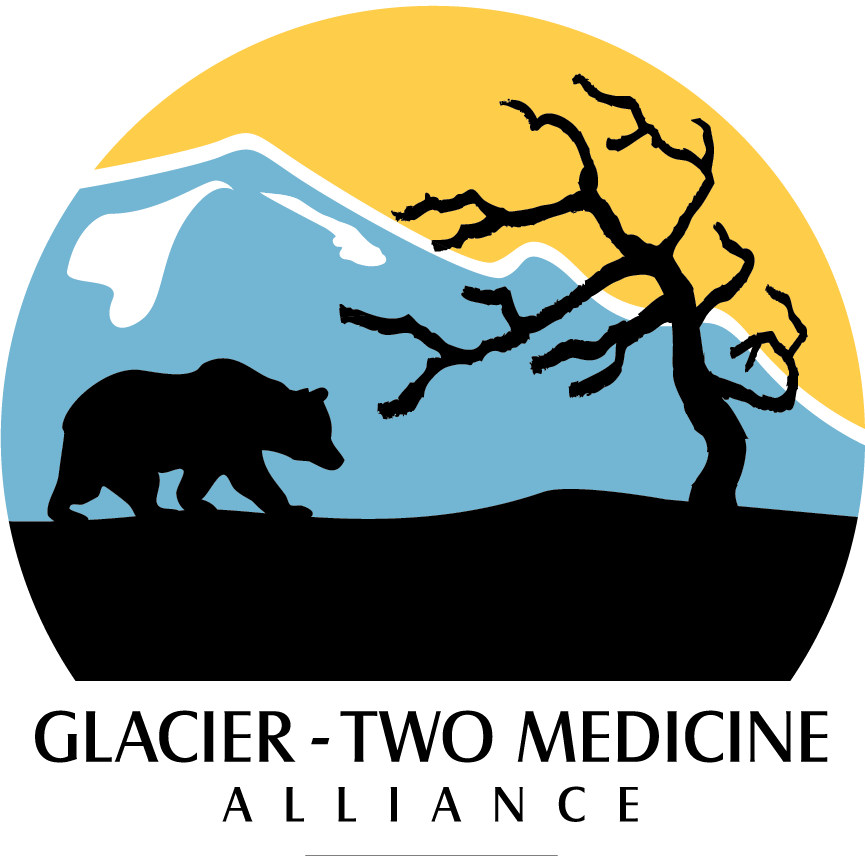
Like many communities across the United States, the Blackfeet reservation community suffers from widespread food insecurity and lack of access to nutritional resources. Danielle Antelope, Executive Director of FAST Blackfeet, is working to change that. FAST, or Food and Agriculture Sustainability Team, is working to improve access to healthy, nutritious foods and strengthen local food sovereignty, including reliable access to traditional Blackfeet foods. Unfortunately, climate change creates a growing threat to the ability of people to gather foods like service berry, peppermint, or buffalo berry directly from the land as Blackfeet people have done for generations. Danielle will discuss how FAST Blackfeet is working to address this challenge, as well as other social and economic challenges, to build a more food secure Blackfeet Nation during the next installment of this year’s Two Medicine Voices Speaker Series. Danielle’s presentation is Wednesday, August 23rd at 7 p.m. at Glacier Park Lodge in East Glacier Park. The talk is free and open to the public. Please join us!
Glacier-Two Medicine Alliance’s Jordyn Steele recently sat down with Danielle to learn more about her background and her work to improve food security on the Blackfeet Reservation. The conversation has been lightly edited for clarity and length.

JS: Tell us a bit about yourself: where you were raised, where you went to school?
DA: I am the Executive Director of FAST Blackfeet, alumni of Browning High School and Blackfeet Community College as well as an alumni of Montana State University where I studied Food Sustainability.
JS: What influenced you to choose a career related to food sustainability?
DA: I grew up in a food insecure home and seeing how that was reflected in the health of me and my siblings, bothered me. I learned more about how the food we ate changed within my own family’s timeline. Seeing how the food [we ate] changed within my own family and seeing how that influenced the health of the Blackfeet people.
JS: This year's speaker series explores how climate change is affecting the environment and people here in the Crown of the Continent ecosystem as well as various efforts to enhance our social and ecological resilience. What are some of the most notable ways you see climate change affecting the local food systems and community food security?
DA: One thing I notice in my family, as we’re a harvesting family, and we’ve seen how going out to harvest is changing year to year. Last year, not seeing service berries come up and this year, no peppermint come up are reflections in the change in the climate. How it’s changing the earth. But this is how the tea gardens [FAST Blackfeet have built] are acting as an aide for food. We have herbs even when not supplied by the natural world. This year, there is little peppermints but some of our gardeners have clipping of peppermint.
It has to do with the water-ways, when it dries up, it takes from the source peppermints need. This is one of the most well-known medicines in the community. Last year, the hail that came early, damaged the serviceberries and thimble berries. Last year we had neither berry.
It’s hard because, growing up, and it was all provided and now wondering which plants are not coming up each year, it’s hard.
JS: Why is improving access to traditional or locally sourced foods important to the health and well-being of the Reservation community generally and for Blackfeet people specifically?
DA: Living in a rural community puts us at a disadvantage for reasonably priced, healthy food. Improving access improves the health of the people.
If we tell people to eat ground turkey, they aren’t going to relate to it as they will with ground buffalo. If they come to the pantry, they will explore new ways to cook traditional food and healthy food where otherwise they will go to the store and choose the cheapest option.
Increasing accessibility allows people to explore their health and the way they relate to traditional foods.
JS: What are some of the ways FAST Blackfeet works to improve food security and the resilience of the local food system to the effects of climate change?
DA: FAST Blackfeet supports local food systems by purchasing local meats, local teas for the food pantry, and in doing so helps the local economy and encourages people to grow and harvest from the area which puts people in connection with the land.
[FAST Blackfeet does] land activities like the wild plant harvest work shops and the buffalo harvest and the tea and vegetable, gardens encourage people to grow food for their neighbors, while connecting with the land, so we can be in unison with how it affects the land. If it hurts the land it hurts the people.
Join us for Danielle’s talk on Wednesday, Aug 23 to learn more about FAST Blackfeet. You can also check out their website at fastblackfeet.org or they are on Facebook at: facebook.com/FASTBlackfeet. Danielle’s talk is the last of five talks in this year’s Two Medicine Voices Speaker Series. Previous talks can be viewed on Two Medicine Voices Speaker Series page.
